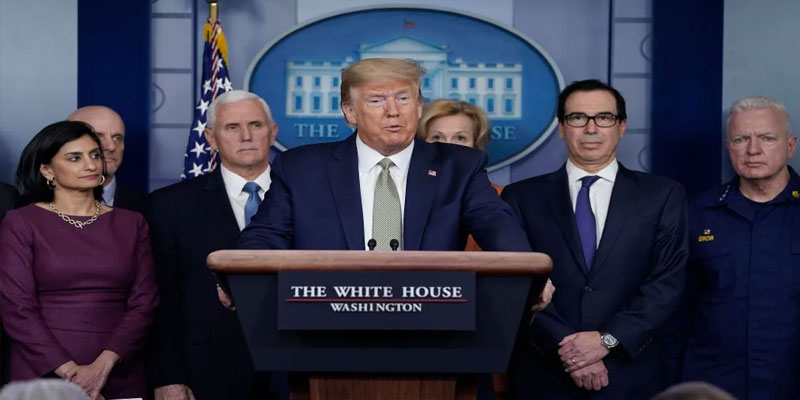A Costly Air Campaign Amid Growing Resistance
In recent weeks, the United States has intensified its military campaign against the Houthi movement in Yemen, targeting strategic assets such as oil refineries, missile launchers, and airports. With President Donald Trump vowing “overwhelming force” to put an end to Houthi missile and drone attacks on international shipping in the Red Sea, the cost of the operation is rapidly climbing—nearing $1 billion in under three weeks, according to reports.
Despite this aggressive effort, the campaign’s effectiveness is under increasing scrutiny. While the Pentagon claims progress, the Houthis remain not only operational but defiantly undeterred. In fact, observers suggest that far from weakening the rebels, the strikes may be playing into their hands.
Who Are the Houthis?
The Houthis, formally known as Ansar Allah, are a political and militant movement rooted in the Zaidi Shia Muslim community in northern Yemen. Originating in the early 2000s, the group rose to prominence through opposition to what they saw as foreign interference and corrupt Yemeni governance. They seized Yemen’s capital, Sanaa, in 2014, triggering a civil war that has since drawn in regional powers, including Saudi Arabia and the UAE, who back the Yemeni government, and Iran, which is widely believed to support the Houthis.
Over the years, the Houthis have evolved from a regional insurgent group to a key player in Middle East geopolitics, increasingly wielding ballistic missiles, drones, and maritime capabilities.
Why Is the US Bombing Yemen Now?
The current wave of airstrikes is part of Washington’s response to Houthi attacks on merchant ships in the Red Sea, a vital global trade route. Since mid-March, the Houthis have launched missiles toward Israel and fired drones and projectiles at US Navy vessels, escalating tensions in the region.
According to US officials, the strikes aim to degrade Houthi military capabilities and deter further aggression. National Security Advisor Mike Waltz has cited the killing of senior Houthi figures as evidence of success. Intelligence estimates suggest around 80 Houthi military officers have been killed.
However, the group’s leadership structure and missile infrastructure remain largely intact. Their missile launches and drone operations continue, reflecting their capacity to endure sustained military pressure—much like the metaphor they’ve come to embody: the “honey badgers of resistance”.
Performative Power? The Limits of Airstrikes
While the strikes have inflicted damage—particularly on drone production and resupply routes—military experts and regional analysts argue that this approach lacks a strategic endgame.
As Michael Knights of the Washington Institute notes, while the Houthis are uncomfortable, they remain deeply “inured to war with a first-world military.” Elisabeth Kendall, a prominent Yemen scholar, is more critical, suggesting that the bombing campaign is “largely performative,” serving to demonstrate U.S. resolve rather than achieve sustainable peace.
The Houthis’ continued defiance, even in the face of intense bombardment, reflects a deeper issue: airstrikes alone are unlikely to weaken an ideologically committed and battle-hardened force that has survived over a decade of warfare and tens of thousands of airstrikes, especially from the Saudi-led coalition.
Consequences and Regional Repercussions
Instead of suppressing the Houthis, the airstrikes appear to be fueling their narrative of resistance against foreign aggression. In fact, there are increasing signs that the Houthis may welcome the escalation. As Farea Al-Muslimi of Chatham House remarked, “The airstrikes are a direct answer to the Houthi prayers to have a war with the US.”
Far from being isolated, the Houthis have begun threatening the UAE and escalating their rhetoric, positioning themselves as defenders of Yemeni sovereignty against imperialist forces. Saudi Arabia, meanwhile, has raised its air defense systems to the highest alert, signaling broader regional fears of spillover conflict.
A Strategic Rethink Is Urgently Needed
The U.S. air campaign in Yemen may be tactically successful in disrupting some Houthi capabilities, but strategically, it risks empowering the very group it seeks to weaken. By portraying themselves as resilient under fire, the Houthis gain not only local legitimacy but also regional and international attention.
If the goal is to ensure maritime safety and stabilize Yemen, military strikes must be coupled with a clearer political strategy, regional diplomacy, and long-term engagement. Without this, the U.S. risks fighting a war that costs billions, kills hundreds, and delivers no durable peace—a scenario that may ultimately benefit the Houthis more than anyone else.
(With inputs from agencies)





